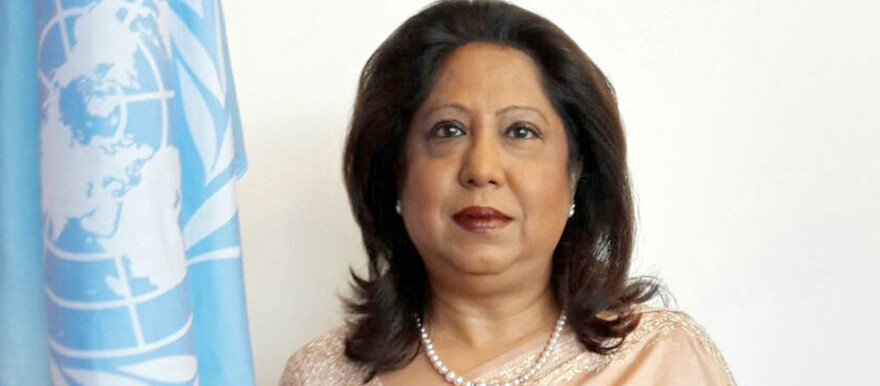Conflict-related sexual violence continues to be one of the most traumatic features of the conflict in South Sudan, United Nations Special Representative on Sexual Violence in Conflict Pramila Patten said on the occasion of the global observance of the eighth “International Day on the Elimination of Sexual Violence in Conflict South Sudan” on Sunday.
According to Patten, Women, men, and children continue to be at risk while facing pandemic-related restrictions, spiking violence, and reduced access to services and legal protections.
“Sexual violence continues to be perpetrated by parties to the conflict, with a steady increase in the number of incidents of conflict-related sexual violence perpetrated by community-based militia,” she said. “The recent record numbers of sexual violence, which has doubled compared with the same period last year, and the reports that emerged from Leer County in April, are extremely concerning.”
Patten said that despite these challenges, modest progress has been made in terms of implementing the Action Plan for the Armed Forces on Addressing Conflict-Related Sexual Violence.
“Training initiatives for the armed forces focused on the prevention and response to sexual violence, as well as command responsibility, have continued,” she said. “A Joint Implementation Committee on conflict-related sexual violence was formally launched in November 2021. Since then, I have received their first progress report detailing the actions that are being taken to curtail sexual violence by the armed forces.”
She said that the Mission provided advisory and logistical support to justice actors to ensure steps are being taken on accountability for sexual violence crimes, and to promote access to justice.
“I call on all actors, including the South Sudan National Police Service, to continue to meaningfully implement their respective Action Plans and commitments, in line with the survivor-centered approach articulated in Security Council Resolution 2467 (2019),” Patten urged.
She said impunity for crimes of CRSV remains pervasive, with limited progress made in relation to the thousands of cases reported over the past decade.
“To ensure we address the root causes of sexual violence, we must redouble our focus on prevention. Equally critical is empowering survivors which require investing in broad-based social protection and employment opportunities, including to enhance economic and food security,” she said.
She emphasized that all tools must work in tandem to reverse the emboldening effects of impunity; that prevention must be paramount; and that we must reinforce, at every opportunity, the message that the only shame of rape is in committing, commanding, or condoning it.
“The rights, needs, aspirations, and wellbeing of survivors must be at the heart of all of our interventions, as we strive to prevent the occurrence and recurrence of these grave crimes,” Patten said.




